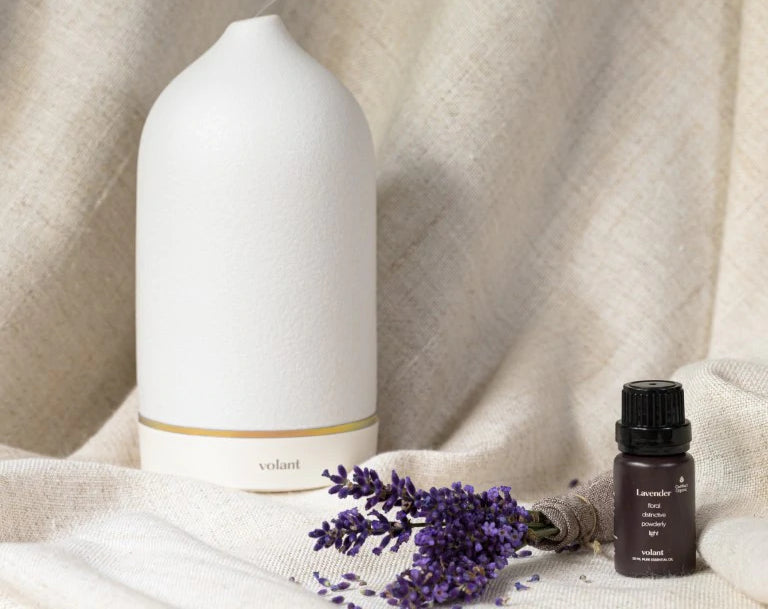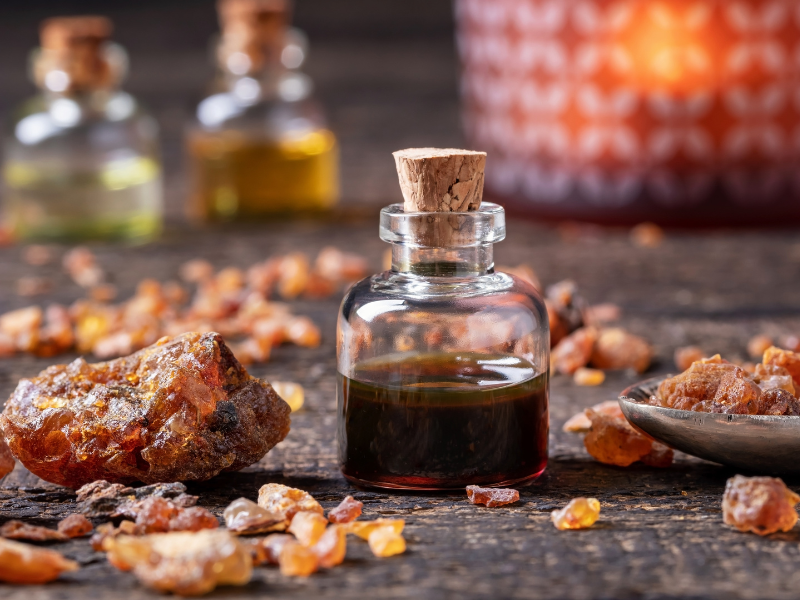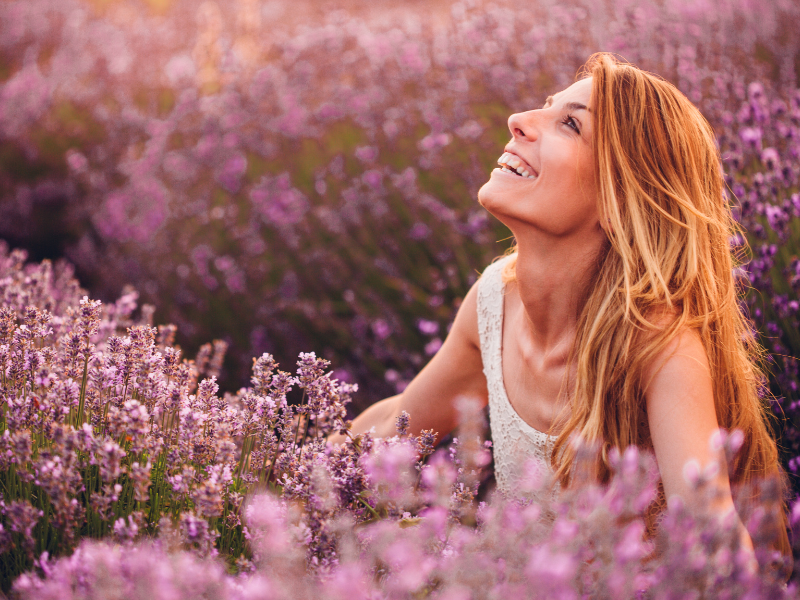You'll find that lavender essential oil is used for a variety of purposes, such as in aromatherapy, massage therapy and other forms of topical application. However, there are a few things to keep in mind when using lavender essential oil, including its potential side effects and interactions with other medications.
In this guide, we will discuss all the different ways you can use lavender oil, as well as the potential risks and side effects of using this essential oil. We will also provide some safety guidelines to help you use lavender oil safely and effectively.
What is lavender essential oil?

So, what is lavender essential oil? Lavender oil is a natural essential oil that is extracted from the lavender plant. The lavender plant is a small, flowering shrub that grows in temperate climates around the world.
You might be surprised to learn that lavender actually belongs to a family called Lamiaceae – that’s the mint family. This family of plants is commonly used in aromatherapy, thanks to the potent aroma and healing properties of most plants in this family.
The Latin name for lavender is Lavandula, so you’ll notice that every type of lavender starts with Lavandula. The two most commonly used types of lavender in aromatherapy are Lavandula angustifolia (English lavender) and Lavandula dentata (French Lavender).
Its name comes from the Latin word “lavare”, which means to wash. It’s believed that it was given this name after the Romans discovered that lavender made the perfect addition to a bath, adding the blooms to their bath water to enjoy its powerful properties.
Nowadays, lavender oil is a popular essential oil for aromatherapy as well as being used in cosmetics, perfumes and other products.
Lavender essential oil - quick facts
💜 Latin name: Lavandula
💜 Country of origin: 🇧🇬 Bulgaria is the world’s largest producer, although it is produced worldwide
💜 Scent note: Middle
💜 Annual production: 200 metric tonnes per year
💜 Popular uses: Aids relaxation and sleep
How is lavender essential oil made?

Lavender essential oil has a sweet, floral aroma and is often used to scent candles, soaps, and other beauty products. It is also used in aromatherapy to promote relaxation and stress relief. But how is this popular essential oil made?
Although lavender is native to Mediterranean countries, it can now be found growing all over the world. In fact, Bulgaria is known to be the world's largest producer of lavender today.
The most common way to produce lavender essential oil is through steam distillation. The lavender flowers are placed in a still, and hot water is injected. This causes the essential oils to be released from the plant, which is then collected and condensed.
A recent study found that it takes over 65,000 pounds of lavender flowers to produce just one pound of lavender oil. This shows the high potency of lavender essential oil.
Benefits of lavender essential oil

Lavender essential oil has a wide range of benefits, which is why it is one of the most popular essential oils in the world.
Some of the main benefits of lavender oil include:
- 💜 Relaxation
- 💜 Improving sleep quality
- 💜 Reducing inflammation
- 💜 Easing pain
- 💜 Reducing anxiety
- 💜 Soothing eczema
Let's take a look at each of these benefits of lavender oil in more detail.
Lavender essential oil for relaxation
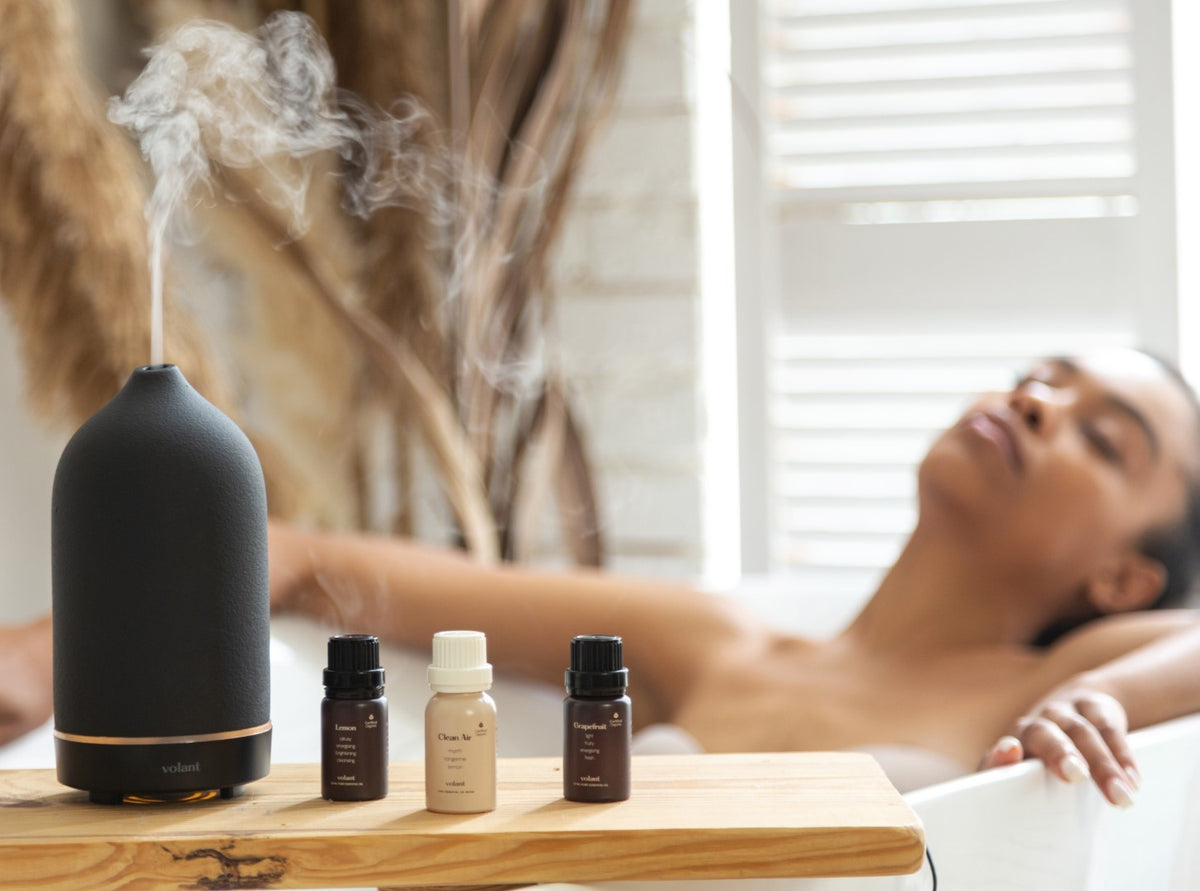
The sweet, floral aroma of lavender oil is often used to promote relaxation and stress relief. You’ll be hard-pressed to feel stressed when you're inhaling the beautiful aroma of lavender essential oil!
If you're hoping to use your lavender essential oil for relaxation, there are a few different ways in which you can do this. For example, you can add the essential oil to a diffuser, add it to a bathtub full of water, or combine it with a carrier oil for use in massage.
Lavender oil for improving sleep quality

Insomnia is a common problem that affects millions of people around the world. Lavender essential oil may help to improve sleep quality by promoting relaxation and reducing stress levels.
A study published in the Journal of Alternative and Complementary Medicine found that lavender oil may be an effective treatment for insomnia. The study participants who received lavender oil experienced a significant improvement in sleep quality compared to those who received a placebo.
Lavender oil for reducing inflammation

Inflammation is a natural process that helps the body to heal and protect itself. However, we now know that chronic inflammation is linked to most diseases.
Lavender oil has anti-inflammatory properties that may help to reduce inflammation in the body. A study published in the Journal of Clinical Nursing found that lavender oil may be helpful in reducing inflammation in people with osteoarthritis.
Lavender oil for easing pain

Pain is a common problem that can affect people of all ages and can occur for many different reasons. Lavender essential oil may help to ease pain by reducing inflammation and promoting relaxation.
A study published in the Journal of Investigational Complementary and Alternative Medicine found that lavender oil was effective in reducing pain in people with chronic pain. The study participants who received lavender oil experienced a significant reduction in pain compared to those who received a placebo.
Lavender oil for reducing anxiety

Anxiety is a common problem that can cause a lot of distress. It is estimated that around 18% of the population suffers from anxiety disorders.
Lavender essential oil is renowned for its calming effect as well as its ability to reduce stress. This makes lavender essential oil an effective natural remedy for anxiety, and studies are beginning to confirm this benefit.
Lavender oil for soothing eczema

Eczema is a skin condition that can cause a lot of irritation and itching. Lavender essential oil may help to soothe the skin and provide relief from the symptoms of eczema.
To use lavender essential oil for eczema, mix a few drops of the essential oil with your usual moisturiser or a carrier oil and massage it onto the affected area. You'll find that it quickly soothes any irritation and helps your skin to heal faster.
How to use lavender essential oil
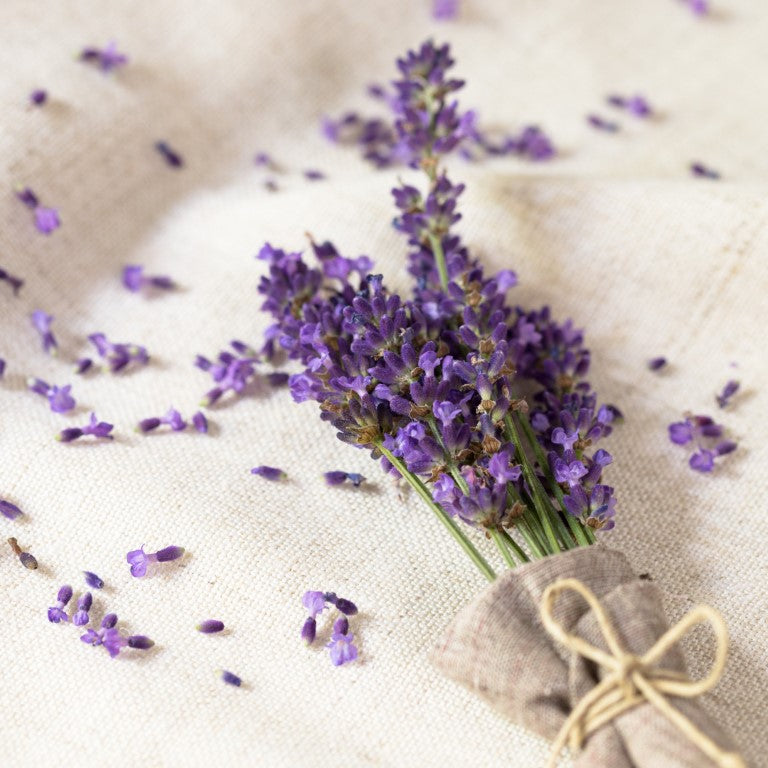
Lavender essential oil can be used in a variety of ways, depending on its intended purpose.
Here are some of the most common ways to use lavender essential oil:
- 💜 Inhalation
- 💜 Aromatherapy massage
- 💜 Topical application
- 💜 Pillow mist
Let’s take a look at each of these uses of lavender essential oil in more detail.
Inhalation of lavender essential oil

Inhaling lavender essential oil is a great way to enjoy its benefits. You can either use an essential oil diffuser, or you can add a few drops of lavender oil to a bowl of hot water and inhale the steam.
This is a great way to relax and de-stress after a long day. The floral aroma of lavender oil will help to calm and soothe your mind, while the essential oil’s anti-inflammatory properties can help to ease tension headaches and promote restful sleep.
Aromatherapy massage with lavender oil

Lavender oil is a great choice for aromatherapy massage, as it helps to promote relaxation and stress relief. It’s also known for its anti-inflammatory and analgesic properties, which can help to relieve pain in the body.
Before it can be used in massage, lavender essential oil needs to be combined with a carrier oil, such as jojoba oil or sweet almond oil. You can also experiment by blending other essential oils with your lavender oil to maximise the benefits, glean other benefits, or simply because you have a favourite delicious scent!
Topical application of lavender oil

Lavender essential oil can also be applied topically to the skin. It is often used to treat wounds and burns and can also be added to a bathtub or footbath. You can also use it in a compress or add it to a cream or lotion.
When lavender oil is applied topically, it should be diluted with a carrier oil, such as sweet almond oil or jojoba oil.
Pillow mist with lavender oil

If you’re looking for a way to enjoy the relaxing properties of lavender essential oil while you sleep, you can try making a lavender pillow mist. Simply add a few drops of lavender oil to distilled water and spritz it on your pillows before bed. The floral scent will help to calm and relax your mind while you drift off to a more peaceful, regenerative sleep.



